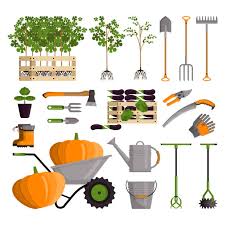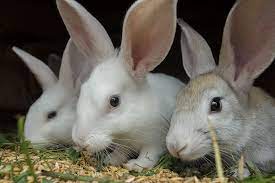| At the end of this course the student should be able to: know the historical background of agriculture in terms of herding, the nomadic way of life, food gathering and hunting. • appreciate the value of agriculture to society and human being. • know the value of the farm as a production unit. • recognise the value of various farming systems and their socioeconomic impact in Uganda. • realise the importance of keeping records in agriculture. • appreciate the requirements of a career in agriculture and key principles of the labour act on the living conditions of the farm workers. |

- Teacher: NKUNZUMUREMYI BRUNO
- Teacher: JOHN DDUMBA
At the end of this course, a learner should be able to:
- identify tools used in the farm - garden tools, woodworking tools, metal tools, and the basic tools used for fencing, mechanics and farming activities.
- demonstrate the skills of using farm tools and implements for better production.
- show skill in using common measurement tools for length, volume, time and mass/weight.
- express basic occupational safety and health standards in agriculture.
- explain skills in applying the steps in giving first aid on the farm and during agricultural activities.

- Teacher: NKUNZUMUREMYI BRUNO
- Teacher: JOHN DDUMBA
At the end of this course, the learner will be able to:
- show skills in analysing and identifying the different components of soil.
- appreciate the different types of weathering processes and factors influencing soil formation.
- illustrate skills in distinguishing between the different soil particles, soil textures, soil structure, soil profile horizons and types of soils as used for agricultural purposes.
- recognise the importance of plant nutrients and soil pH.
- demonstrate soil improvement practices and understand their effects on plant growth.

- Teacher: NKUNZUMUREMYI BRUNO
- Teacher: Khasim Ddungu
| At the End of this course, the learner will be able to: |
- identify a range of vegetables grown locally and understand their value in both nutritional and financial terms.
- appreciate how to select an appropriate vegetable for growing locally.
- establish a nursery; apply good practice of vegetable growing.
- demonstrate skills in preparing pesticides and plant derivatives.
- handle vegetables during and after harvest in order to maintain quality.
- market vegetables effectively.
- follow food safety guidelines for harvested fresh
vegetables.

- Teacher: NKUNZUMUREMYI BRUNO
- Teacher: JOHN DDUMBA
The course for a “Rabbit Farmer” below defines and teaches the Duties and Tasks a competent Rabbit farmer
is expected to perform in the world of work (on the job) in Uganda and the East African region today.
At the end of this course, a trainee will be awarded a Uganda Vocational Qualification Framework (UVQF) Certificate Level One.

- Teacher: John Paul M. MUGISHA